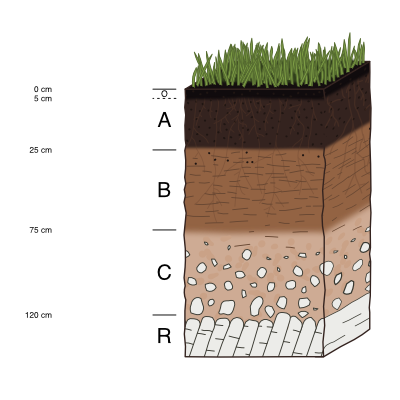Soil Morphology and Engineer Design
Soil Testing & Septic Design Services Built for Your Land, Your Home, & Missouri’s Regulations
When installing a new septic system, the first and most important step is understanding your soil. At Apex Underground, we have soil scientists & engineers on staff to design systems based on soil morphology results and landtopography—the structure, type, and drainage capabilities of the land under your property.
Whether you’re building a new home on acreage or replacing an outdated system, our team manages the entire process from perc testing to engineered design plans—ensuring your septic system is safe, functional, and approved by local health departments.


Is Your Soil Septic-Ready? Why Soil Testing is Step One
What Is Soil Morphology—and Why Does It Matter?
Soil morphology refers to the composition, structure, and drainage properties of your land’s soil. Certain soil types—like heavy clay—don’t drain well and require engineered septic systems.
This matters because:
- It determines whether your land can absorb and treat wastewater naturally
- It affects what type of septic system you’re allowed to install
- It’s required by state & federal agencies to ensure your system won’t contaminate groundwater or pose a health risk
That’s where our septic design team comes in.
When Do You Need to Call Apex Underground?
Signs You Might Need an
Engineered Septic System
You’ll likely need a specialized system if you meet any or all of these items. Unsure if you do? Reach out to our team today. We’ll evaluate your land and let you know the best path forward—with
no guesswork or surprises.
Patches of brown grass or dead spots over your septic area
Puddles or standing water in your yard, especially after rain
Water pooling around your drainfield even when it hasn’t rained
Septic smells or soggy patches near where your system is buried
Your system has backed up or failed multiple times in the past
Our Design Process: From Soil Test to Final Approval
1. Site & Soil Evaluation
We begin with a perc test (percolation test), now better known as soil morphology, to assess how your property handles water.
2. Custom System Design
Based on the test, a licensed septic engineer creates a system specific to your land’s drainage, elevation, & usage needs.
3. Permit & Plan Submittal
We handle the paperwork, working with county health departments and inspectors to get your plans approved.
4. Installation by Experts
Once approved, our in-house team handles the excavation and installation—we manage everything start to finish.
Turning Soil Data into Smart Septic Design
How Soil Science Drives Safer, Longer-Lasting Septic Systems
Soil reports aren’t just paperwork—they’re the blueprint for your system’s success. Once your site has been tested, Apex Underground works hand-in-hand with licensed septic engineers to interpret the results and design a system that’s built to last.
We evaluate key factors like:
- Percolation rate – how quickly your soil can absorb wastewater
- Soil texture – sandy, silty, or clay-heavy? It matters.
- Depth to water table or bedrock – to protect groundwater
- Slope and elevation – affects where and how we place tanks and drainfields
From these insights, we can recommend whether you need a conventional gravity system, low-pressure dosing system, or a fully engineered solution. And no matter the complexity, we’ll handle it from permitting to final inspections—keeping you informed and stress-free along the way.
The result? A custom septic system that works with your land, not against it.

Let’s Build a System That Works for Your Property
Whether you’re planning a new build or troubleshooting a failed septic design, Apex Underground has the experience to make sure your system is designed for your land—and built to last.
Call
(816) 223-2400 or
Schedule a Consultation
today for your soil evaluation and septic design plan.
Soil Morphology and Engineer Design
Soil Testing & Septic Design Services Built for Your Land, Your Home, & Missouri’s Regulations
When installing a new septic system, the first and most important step is understanding your soil. At Apex Underground, we have soil scientists & engineers on staff to design systems based on soil morphology results and landtopography—the structure, type, and drainage capabilities of the land under your property.
Whether you’re building a new home on acreage or replacing an outdated system, our team manages the entire process from perc testing to engineered design plans—ensuring your septic system is safe, functional, and approved by local health departments.


Is Your Soil Septic-Ready? Why Soil Testing is Step One
What Is Soil Morphology—and Why Does It Matter?
Soil morphology refers to the composition, structure, and drainage properties of your land’s soil. Certain soil types—like heavy clay—don’t drain well and require engineered septic systems.
This matters because:
- It determines whether your land can absorb and treat wastewater naturally
- It affects what type of septic system you’re allowed to install
- It’s required by state & federal agencies to ensure your system won’t contaminate groundwater or pose a health risk
That’s where our septic design team comes in.
When Do You Need to Call Apex Underground?
Signs You Might Need an
Engineered Septic System
You’ll likely need a specialized system if you meet any or all of these items. Unsure if you do? Reach out to our team today. We’ll evaluate your land and let you know the best path forward—with
no guesswork or surprises.
Patches of brown grass or dead spots over your septic area
Puddles or standing water in your yard, especially after rain
Water pooling around your drainfield even when it hasn’t rained
Septic smells or soggy patches near where your system is buried
Your system has backed up or failed multiple times in the past
Our Design Process: From Soil Test to Final Approval
1. Site & Soil Evaluation
We begin with a perc test (percolation test), now better known as soil morphology, to assess how your property handles water.
2. Custom System Design
Based on the test, a licensed septic engineer creates a system specific to your land’s drainage, elevation, & usage needs.
3. Permit & Plan Submittal
We handle the paperwork, working with county health departments and inspectors to get your plans approved.
4. Installation by Experts
Once approved, our in-house team handles the excavation and installation—we manage everything start to finish.
Turning Soil Data into Smart Septic Design
How Soil Science Drives Safer, Longer-Lasting Septic Systems
Soil reports aren’t just paperwork—they’re the blueprint for your system’s success. Once your site has been tested, Apex Underground works hand-in-hand with licensed septic engineers to interpret the results and design a system that’s built to last.
We evaluate key factors like:
- Percolation rate – how quickly your soil can absorb wastewater
- Soil texture – sandy, silty, or clay-heavy? It matters.
- Depth to water table or bedrock – to protect groundwater
- Slope and elevation – affects where and how we place tanks and drainfields
From these insights, we can recommend whether you need a conventional gravity system, low-pressure dosing system, or a fully engineered solution. And no matter the complexity, we’ll handle it from permitting to final inspections—keeping you informed and stress-free along the way.
The result? A custom septic system that works with your land, not against it.

